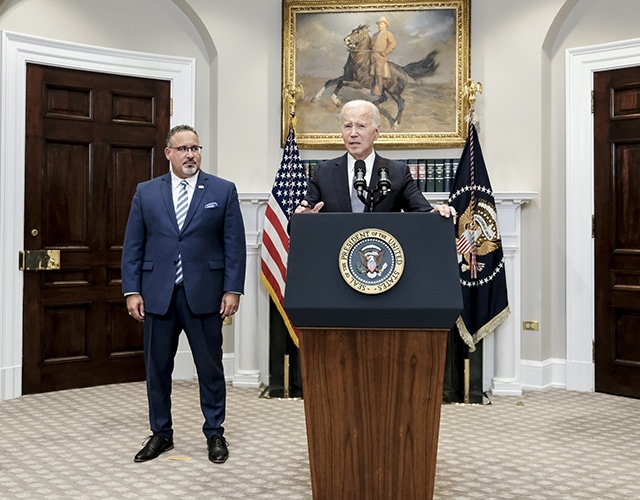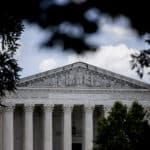The Biden administration is pausing student loan payments for 8 million borrowers enrolled in its new repayment plan, known as SAVE, after a federal appellate court issued a ruling temporarily blocking the program.
“Borrowers enrolled in the SAVE plan will be placed in an interest-free forbearance while our administration continues to vigorously defend the SAVE plan in court,” Miguel Cardona, the secretary of education, said in a statement. “The Department will be providing regular updates to borrowers affected by these rulings in the coming days.”
For now, borrowers are unable to apply to the SAVE repayment plan, and applications for other income-driven repayment plans are also unavailable.
The 8th U.S. Circuit Court of Appeals in St. Louis granted a request by Missouri and other Republican-led states for an administrative stay, which prevents the Biden administration from “implementing or acting pursuant” to the rule that created the SAVE program last summer, according to the court filing.
The SAVE program, which ties monthly payments to a borrower’s income and household size, is more generous than previous iterations of income-driven repayment plans and has generated zero-dollar payments for 4.5 million low-income borrowers.
The one-page order, issued July 18, is just the latest in a series that have sprung from separate lawsuits brought by two groups of Republican-led states challenging the legality of the SAVE repayment plan, throwing millions of borrowers — and their financial lives — into limbo.
The latest ruling granted a request from a group led by Missouri Attorney General Andrew Bailey, who said in a post on the social media site X that the order was a “HUGE win for every American who still believes in paying their own way.”
This latest action goes much further than the flurry of previous orders did. A preliminary injunction stemming from the Missouri case had suspended only some loan cancellations but did not stop the entire program from operating. And a Kansas ruling, which had initially halted only parts of the program that were not yet in place, had been blocked earlier this month by another federal appellate court.
c.2024 The New York Times Company. This article originally appeared in The New York Times.







